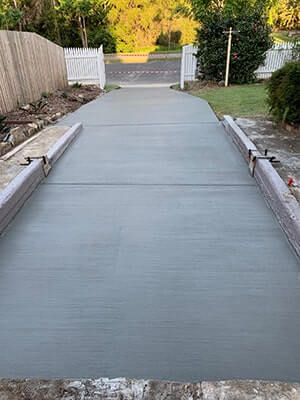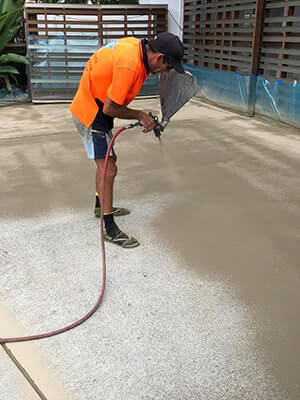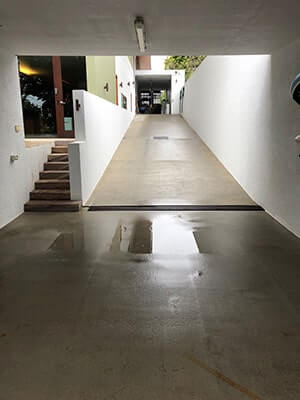Concreters’ Tips to Maintaining Concrete

Maintaining Concrete
One of the reasons why most homeowners choose concrete for their driveway is the fact that concrete needs little work to maintain. However, a concrete driveway is an investment that will require some care every now and then. Take good care of your driveway and it will last you a lifetime. It will always be the same like on the day it was poured. Follow our concreters’ tips to keep your driveway looking new every day. These tips also work for those who have concrete with decorative stenciling or stamping.

Keep a tight seal
A good sealer will protect concrete and keep its pristine appearance. Sealers will keep the surface dust-proof. Sealers can protect your surface concrete from scratches and abrasions. Sealers also repel water. Depending on your local weather and traffic, concreters recommend resealing driveways every three years or so. For stamped or stenciled concrete this period is a bit shorter – about two years. But when you start to see some cracks that may be a good sign that you need to reseal.

Clean your concrete
Concrete will appear neglected without proper cleaning. Even a brand new driveway can look worn out and old in a matter of months if you let mud, dust and grime build up. Pressure clean your driveway every six month or as often as you feel you should. Cleaning will be much easier if you do not let dirt linger for too long. Try to clean stains from gas, oil, or grease as soon as you can. It will seep deeper into concrete if you leave it untreated. The easiest way to get rid of oil stains is to use warm water and a brush with thick and strong bristles. Get rid of dirt spots and discolouration using a pressure cleaner.
Be careful
Concrete is one of the most durable construction materials, but you still need to be gentle if you want to maintain its look. Without proper care, you can still damage concrete surfaces. Avoid using sharp and pointed objects around concrete. Sharp rakes and shovels can scratch the surface. Do not use cleaners with acid and other harsh chemicals. A sharp blast of water using a pressure cleaner is the best and kindest way to clean your concrete.
Let it set
Give concrete enough time to cure. This is a simple rule that people always seem to ignore. Concrete should harden and fully set before people can walk or drive all over it.
As a general rule, you should not drive on newly poured concrete within seven days. Do not allow heavy traffic until after 30 days. Disregard these rules and you may damage your concrete driveway forever.
Choose who to invite on your driveway
Not all driveways are made for heavy vehicles. Unless you specifically designed it to withstand all sorts of load, your home driveway may not be able to carry heavier loads. You can let small cars onto it without causing cracks. Heavier vehicles like trucks can disturb the structural integrity of your driveway over time. If construction work is done around your home, ask the tradesmen to avoid parking their truck on your driveway. Other heavier vehicles like utility and garbage trucks can cause damage to home driveways. If you want your concrete driveway to last longer, be selective about who uses it.
Don’t Allow Water to Stand On It
Water can be concrete’s worst enemy. Moisture affects concrete’s strength. Water causes cracks within the slabs of concrete. If you have to pour concrete yourself, make sure that the driveway has a proper drainage system. Water must never settle on your driveway for too long.
Be Careful With Your Placement
Pots and bins can be a good accent to any driveway. But if you keep them in one place for too long, they can leave behind dark circles on your concrete. This can seriously damage the appearance of your driveway. Rearrange these accent pieces every so often to prevent this problem.
Follow these simple tips and you can enjoy your concrete driveway for a lifetime. You may get in touch with us if you need help from building to maintaining your concrete driveway. We offer services including driveway construction, resealing and proper pouring of concrete. We can share even more tips to care for your concrete.
